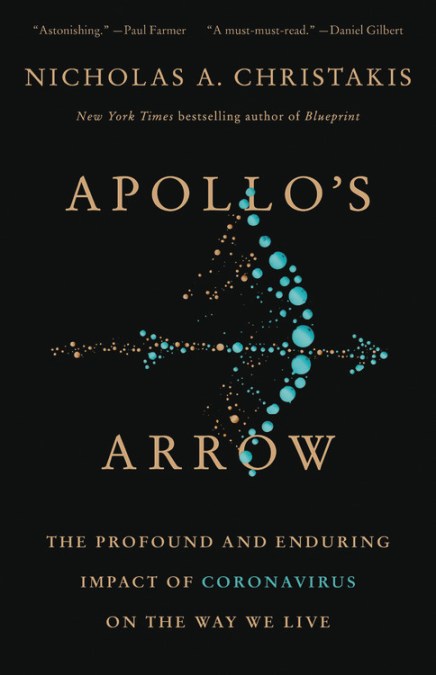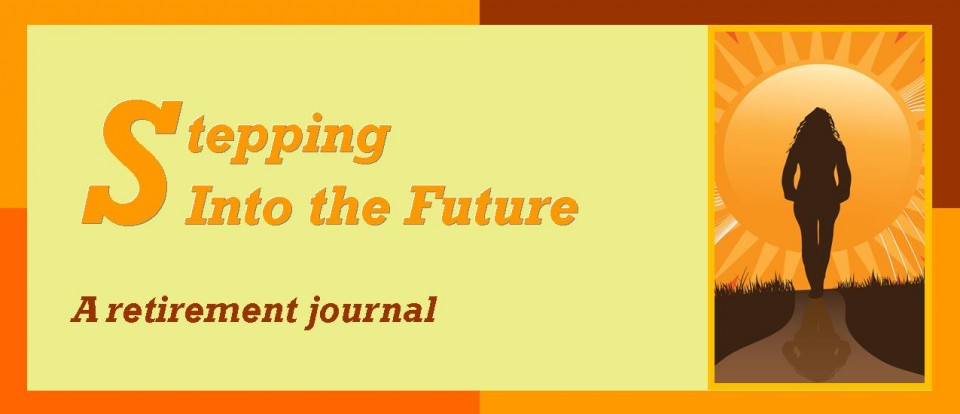Finding My New Normal
14January 21, 2022 by Jean
 Like many people, I entered 2021 with an almost-giddy anticipation that vaccinations would soon bring the pandemic to an end. Almost a year after I got my first vaccine dose, I am wiser about the limitations of vaccination, about the wily mutation strategies of viruses, and about the ways that humans’ lack of control over pandemic disease triggers emotions that stoke social and political conflict. If I was looking forward in January 2021 to a return to normal, in January 2022, I am settling in for the long-haul and trying to find a new normal.
Like many people, I entered 2021 with an almost-giddy anticipation that vaccinations would soon bring the pandemic to an end. Almost a year after I got my first vaccine dose, I am wiser about the limitations of vaccination, about the wily mutation strategies of viruses, and about the ways that humans’ lack of control over pandemic disease triggers emotions that stoke social and political conflict. If I was looking forward in January 2021 to a return to normal, in January 2022, I am settling in for the long-haul and trying to find a new normal.
I have been reading Nicholas Christakis’s Apollo’s Arrow: The Profound and Enduring Impact of Coronavirus on the Way We Live (Little, Brown Spark 2020). Christakis is a medical doctor with an understanding of infectious disease and a sociologist who specializes in human social networks; he uses his expertise to set the Covid-19 pandemic in the context of humanity’s long history of plagues, pandemics, and infectious disease. His comparative analysis provides insight into what we have been experiencing for the past two years and helps me to think about how to move forward in 2022.
Christakis was writing his book in the late summer of 2020 – during the summer surge of Covid-19 in the southern states, before we had vaccines, and before the virus began to mutate rapidly. And yet, by drawing on his analysis of past pandemics, he does a remarkably good job of predicting what will come. For example, he says that it is “not inconceivable” that we will have one million Covid deaths in the United States by the time the pandemic ends; we have now experienced more than 850,000 deaths, and at the current rate of death, we will get to the one million mark by spring. I also found Christakis’s division of pandemics into three stages very helpful: He distinguishes an immediate pandemic period, before we have sufficient herd immunity from vaccines and infections to significantly slow the spread of the virus, an intermediate pandemic period, after we have reached herd immunity but when people are still dealing with the clinical, psychological, social, and economic effects of the pandemic, and a post-pandemic period, when things will return to “normal,” albeit with some lasting changes. He predicted that we would not reach the end of the immediate pandemic period (during which we must still deal with waves of infection and with the need for wearing masks and avoiding crowded places) until sometime in 2022. He didn’t expect that we would reach the post-pandemic period until 2024 or 2025.
Do I wish that I had been aware of these realistic predictions earlier? I don’t know. I’m not sure whether they would have helped me to plan more realistically or just led me to despair. Nevertheless, understanding that the pandemic and its immediate after-effects are likely to last another two-to-three years has made me realize that I need to find my way to a new normal; I am in my mid-seventies and can’t afford the luxury of just putting things off until this is over.
I am risk-averse by nature, so job one for me in finding my new normal is learning to be less cautious. Don’t get me wrong; I’m never going to become one of those throw-caution-to-the-wind, “I’m done with Covid” people. But I need to recognize that I can’t eliminate all risk of becoming infected, and I need to do a better job of realistically assessing risk and calibrating the line between taking reasonable precautions and being overly cautious. Yes, the omicron variant is raging in my part of the country, with infections and hospitalizations at a record high for the pandemic. But I’m also fully vaccinated and boosted, and I always wear a high-quality mask in indoor public settings – all of which dramatically lower my risk.
In recent months, as we’ve dealt with the delta and omicron infection waves, I’ve been learning to step outside my comfort zone and take some reasonable risks. I’m proud of myself for having participated in my choral group’s concert in December. Over the New Year, I drove down to southern New England to visit with various family members (including a sister who lives in a nursing home with recent infections). Last week, I both had a friend over for lunch and went to the first singing rehearsal for a March classical music concert.
In dipping my toes into the waters of increased risk, I’ve been helped by at-home rapid antigen tests. I managed to stock up on these in late November and early December, before they became just about impossible to find, and I used them throughout the holiday season to test myself before going to indoor gatherings with others. The testing does not protect me from infection, but it does greatly lower the risk that I am unknowingly infected and transmitting the disease to others. If I do become infected, I am likely to be an “epidemiological dead-end” who does not pass the virus on to anyone else. Because I’ve been testing myself an average of twice a week, the tests have also provided me with some pretty quick feedback that my riskier behaviors (like visiting my sister in the nursing home) have not been too risky.
For the past two years, I have put off various activities in favor of waiting “until the pandemic is over.” In my new normal, the question I want to ask myself is not “Should I do this now or wait until after the pandemic?” but “How can I do this safely?”


Great post Jean! I’ve heard about Christakis’s book, and it sounds like I should certainly give it a read! Currently teaching Global Health, which is pretty fun, given the state of the world right now. Glad to hear you’re broadening your horizons! Be safe out there…❤️
Heidi, This would be a great time to be teaching a Global Health course — no shortage of real-world examples. I have been thinking about an Annual Reviews of Sociology article I used to use in my medical sociology course. The article is about “epidemiological transitions” (similar to the demographic transition) and looks at why we are now experiencing a new era of global infectious diseases.
That would be incredibly interesting!
Your sentiments are, indeed, reflective of what many of us in our seventies have been feeling. How long do you postpone simply living? You are taking a very positive approach and I’m happy to see that you were able to see your sister and to do other things you’ve been passing up.
Your cautious ways without complete isolation may be the new norm. What I tend to say to people with regard to caution: “Look, I’m not afraid of a bus but I’m not gonna go out and stand in front of one.”
Sue, My sister tested positive for Covid two weeks after I visited her — confirming my sense that the nursing home was a risky place to be. Fortunately, she was fully vaccinated and boosted and had an asymptomatic infection. And I have tested negative with at-home rapid antigen tests several times since that visit. Still, I’m glad that I stuck to my guns and refused to remove my mask, even though she was having trouble understanding what I was saying with the mask on.
Yes, the mask wearing is still a wise choice, no matter where or what. I am glad neither you nor she have gotten sick, but still I’m glad you got to see her. I bet she was happy too.
So much has been lost yet so much gained. Some time out into the future we may become more aware of what each one of us has learned.
Great post! I am really interested in this book and I appreciate knowing about the stages of pandemic. My reaction is much like yours and I love the reply of a previous commenter: …not afraid of the bus but not gonna stand in front of it”… perfect!!!!
Donna, There were a number of very interesting ideas in this book, including the stages. I was also fascinated by the idea that whether a country focuses primarily on protecting the most vulnerable or on stopping the spread of the infection leads to different policy choices (for example, who should be prioritized for scarce vaccine doses). Focusing on slowing the spread of infection has always been a heavy lift in the United States because of our strong cultural values of individual freedom and individual choice. Over time, we saw a move away from public health messages focused on “flattening the curve” and protecting others toward protecting yourself from infection, and the individualistic messages have made it more difficult to slow the spread of infection.
It’s a balancing act for sure. My parents are in their mid-80’s and still quite healthy, but they are acutely aware that their time is limited. The loss of time with friends and family has been really hard on them. They are being wise but taking greater risks than they would if they were younger, because they weigh gains and losses differently.
Stacey, Many elders I know are more worried about transmitting the infection to others than about becoming infected themselves. They are willing to take calculated risks on their own behalf but not to take risks with the health of others without their consent.
All good questions and observations. Thanks for the insights from the book…it does help. As I have asthma I am less likely to take risks right now. Hoping I can again soon.
Donna, Health conditions that increase our risk of serious outcomes if we become infected are definitely part of our risk-benefit analyses.
Just discovered your Blog and it is a very insightful Post into Pandemic Progression from a Social standpoint. Since the last one was over 100 years ago, all new people, so none of us really had a point of reference to draw upon. I finally couldn’t outrun COVID and caught it in January. I was fully vaxxed, boosted and overly cautious about risk assessing, yet, had already begun to suspect it would now burn thru the entire population since mitigation here in the States, particularly our State, was not very consistent or good. I had a bad case of it anyway so I wouldn’t want to go thru all that again, tho’ it kept me out of Hospital and Morgue to be Vaxxed and Boosted, it was rough. Tho’ a considerable amount of anxiety diminished by just knowing now I could survive it and not be among that grim statistic of now over 900,000 who perished.
Bohemian, I’m glad to hear that you have recovered from your rough experience with covid and that your vaccinations protected you from more serious illness.